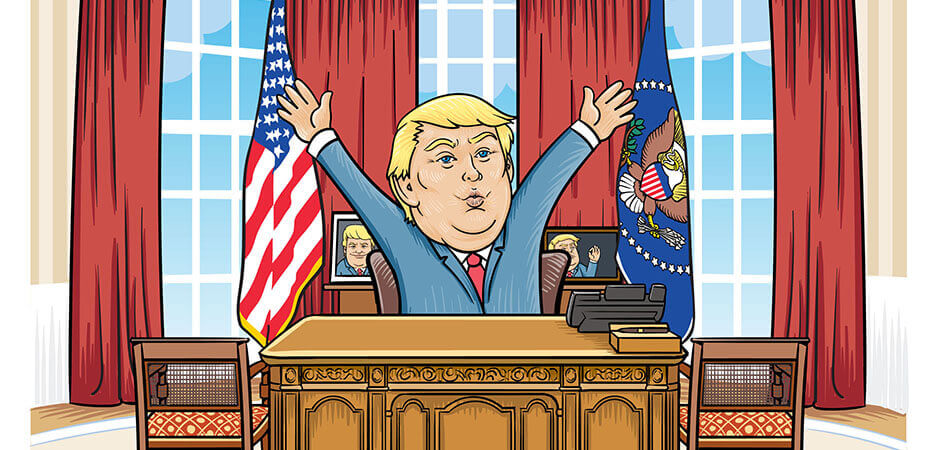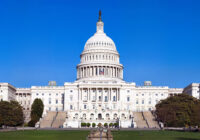For some, Trump was the only candidate who had an “undeniable belief in himself.”
In the age of hyperreality, which came to maturity in 2016, the most unpopular presidential candidate of all time, once elected, became the most unpopular president of all time. Many agree he is also the most impeachable president ever, but is unlikely to be impeached. How does he do it?
Donald Trump is the quintessential political enigma. Peter Kozodoy — a self-made man, entrepreneur and sometime journalist — believes he has heard the oracle speak in the voice of lifetime journalist Tom Brokaw. Brokaw’s answer to the enigma? Self-belief.
US culture is steeped in values and behaviors beginning with the prefix self, from self-reliance to self-confidence, self-help, self-belief, self-aggrandizement and even selfie. It’s reassuring to discover, thanks to Brokaw and Kozodoy, that there’s a simple recipe for success that Kozodoy himself embodies along with the author of The Art of the Deal. It consists of explaining to others the secret of one’s own success — even if one has never been successful at anything other than selling the secret of success.
Here’s Trump’s in his first State of the Union: “If you work hard, if you believe in yourself, if you believe in America, then you can dream anything, you can be anything, and together we can achieve absolutely anything.”
Here is today’s 3D definition:
Self-belief:
The monetizable illusion that otherwise ordinary people are capable of convincing other people that they are extraordinary, for no other reason than their own incapacity to dispel the illusion in their own minds
Contextual note
Ever since the November 2016 election, the media have been left wondering: Was Trump a political genius? Did he understand the message that resonated with an alienated working class? Did the Democrats screw up? Did the Russians fix the election? Did Bernie Sanders spoil the party? Or Jill Stein? Or Ralph Nader, for God’s sake?
No, according to Kozodoy — citing Brokaw — none of those reasons hold water. Very simply, Trump was the only candidate who had an “undeniable belief in himself.” And this profound realization has permitted Kozodoy, a self-described “lifelong learner,” to learn how he himself became successful: he believed in himself as a salesman.
Trump became the leader of the world’s most powerful nation as a self-believing salesman. Not as a political thinker or even a politician. Not as a strategist. Not as a man of the people. Not even as a real estate mogul. Simply as a salesman. We have always known that that’s what makes America great. Willie Loman knew it, but poor old Willie didn’t believe enough in himself. Arthur Miller should have chosen someone like Trump as a model — Fred Trump, for example. Fred undoubtedly believed in himself.
Historical note
Ralph Waldo Emerson published his essay “Self-Reliance” in 1841, giving a philosophical foundation to what would become recognized — or rather idealized — as the quintessential value at the core of US culture. It has become the ultimate justification of libertarianism, an attitude found in various forms across the political spectrum, from Ayn Rand on the right to Noam Chomsky on the left. Kozodoy and Trump are closer to Ayn Rand, emphasizing individual exceptionalism, which also feeds into the idea of national exceptionalism. Chomsky — closer to Emerson — adopts an equally critical view of authority. But instead of seeing self-reliance as a purely individual phenomenon, he views it as a force for voluntary collective solidarity, the ethical foundation of democracy. People seek to understand and cooperate rather than assert and compete.
 We can also see Kozodoy’s simplistic gospel as a modern avatar of the 19th century snake-oil salesman, possibly the ultimate archetype of the self-believing salesman Kozodoy so adores. Here is how he defines Trump’s secret: “Trump achieved his presidential status by being Trump—a confident salesman. And since we can’t deny his results, we can only take what lessons we can from the correlative circumstances we can see.”
We can also see Kozodoy’s simplistic gospel as a modern avatar of the 19th century snake-oil salesman, possibly the ultimate archetype of the self-believing salesman Kozodoy so adores. Here is how he defines Trump’s secret: “Trump achieved his presidential status by being Trump—a confident salesman. And since we can’t deny his results, we can only take what lessons we can from the correlative circumstances we can see.”
This is the logic of tautology. Trump was Trump, and so achieved his goal. Then, to paraphrase, “we can take lessons we can take”. And “results” are not complex outcomes but simply the effect of what “we can see”. He offers us the phrase “correlative circumstances” to make it sound as if there is a logical process embedded in his monologue.
What Kozodoy says of Trump is true of himself. “He’s not lost faith in himself. There’s never any self-doubt.” The great privilege of self-belief is that it is self-perpetuating: you end up actually believing anything you happen to say.
*[In the age of Oscar Wilde and Mark Twain, another American wit, the journalist Ambrose Bierce, produced a series of satirical definitions of commonly used terms, throwing light on their hidden meanings in real discourse. Bierce eventually collected and published them as a book, The Devil’s Dictionary, in 1911. We have shamelessly appropriated his title in the interest of continuing his wholesome pedagogical effort to enlighten generations of readers of the news.]
The views expressed in this article are the author’s own and do not necessarily reflect Fair Observer’s editorial policy.
Photo Credit: pantid123 / Shutterstock.com
Support Fair Observer
We rely on your support for our independence, diversity and quality.
For more than 10 years, Fair Observer has been free, fair and independent. No billionaire owns us, no advertisers control us. We are a reader-supported nonprofit. Unlike many other publications, we keep our content free for readers regardless of where they live or whether they can afford to pay. We have no paywalls and no ads.
In the post-truth era of fake news, echo chambers and filter bubbles, we publish a plurality of perspectives from around the world. Anyone can publish with us, but everyone goes through a rigorous editorial process. So, you get fact-checked, well-reasoned content instead of noise.
We publish 2,500+ voices from 90+ countries. We also conduct education and training programs
on subjects ranging from digital media and journalism to writing and critical thinking. This
doesn’t come cheap. Servers, editors, trainers and web developers cost
money.
Please consider supporting us on a regular basis as a recurring donor or a
sustaining member.
Will you support FO’s journalism?
We rely on your support for our independence, diversity and quality.






